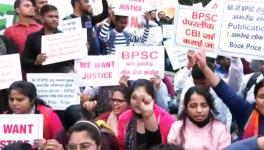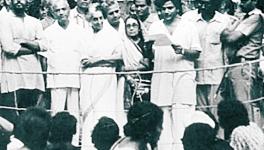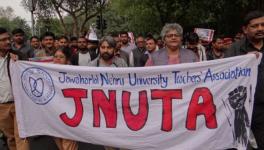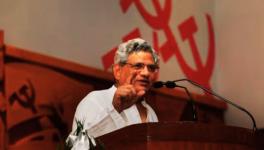JNUTA Gives a Call ‘JNU VC Must Go!’, To Hold a Referendum on August 7
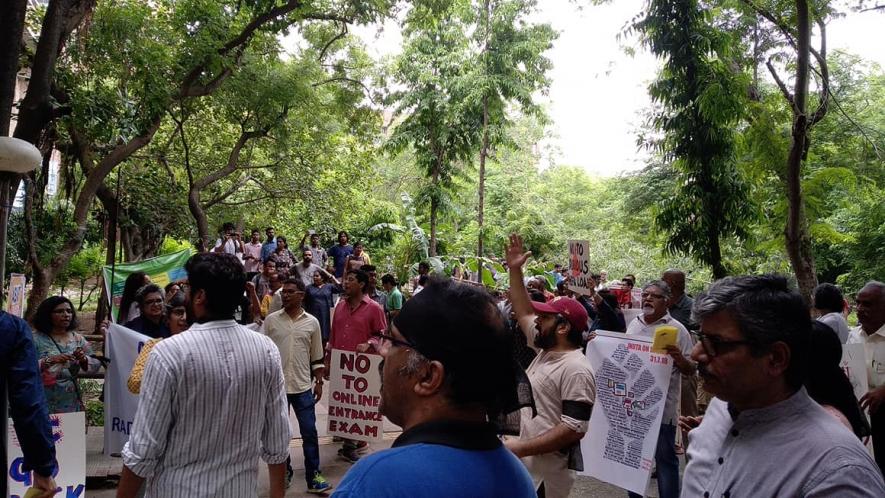
The Jawaharlal Nehru University Teachers’ Association (JNUTA), in its General Body Meeting (GBM), held on 24 July 2018, decided on its future course of action as the monsoon semester of the university has started. The GBM “took note of the serious developments that have taken place in the university since the current vice chancellor, Prof. M. Jagadesh Kumar” took office, both including “the seven charges that emerged from the public enquiry held last year,” and the recent developments “over the last semester and more specifically during the summer break” according to a statement released by the JNUTA.
In accordance with their plan, JNUTA had carried out a one-day strike on July 31, which they conducted successfully. A “Convention on Higher Education” is going to be held on August 3-4 and the JNUTA’s campaign “Why the JNU VC Must Go!” will culminate with a referendum on August 7, 2018. Two questions will be asked in the referendum:
- Should the JNU VC go? (Yes/No), and
- Should the university be burdened with the HEFA loan? (Yes/No)
“JNU stands on the edge of a precipice. We couldchoose to be remembered as the generation of teachers who succumbed to an intentional destruction of all the cherished principles that this university has espoused over the last half century. But we mustchoose to stand up in unity against the attack (partly led by malicious intent and partly resulting from sheer incompetence) on a university that means so much to all of us,” read the JNUTA statement.
One of the recent serious charges levelled against the “top administration” is the monopolisation of all decision-making. All the deliberative processes, like the meetings of the Academic Council (AC) and Executive Council (EC), are “either not held or held during the vacation period,” are “stage-managed with limited scope for discussion”, and in which dissent is not recorded. Issues, which are neither tabled nor discussed, are “passed” (eg. Mandatory attendance for students and teachers).
The major destructive decisions taken by the JNU administration, under the leadership of the VC, without discussing it with or taking opinions of the stakeholders i.e. the teachers, AC, schools and centres, are as follows:
- Submission of a proposal for a loan of Rupees 515 crores to be taken from the Higher Education Financing Agency (HEFA),
- Embracing wholeheartedly, the “autonomy” awarded to the university,
- Unilateral decision to make all entrance examinations objective and exclusively online,
- Approving the plan for biometric attendance for teachers, and
- Drafting an Intellectual Property Rights (IPR) policy which proposed to take copyright control over all work created by stakeholders.
The conclusion of the JNUTA Public Enquiry (2017) are:
- Repeated violation of JNU’s statutory provisions and obligations
- Undermining the integrity of the faculty selection process
- Damaging the interests of students through seat cuts and violation of reservation policy
- Harassing and humiliating teachers and denying them their rightful due
- Assaulting democracy and promoting authoritarianism
- Undermining JNU’s anti-sexual harassment policy by illegally dismantling GSCASH
- Displaying a callous attitude towards the disappearance of a student (Najeeb Ahmed)
“The arbitrary policies undertaken by this administration has meant an unprecedented level of litigation [which] means that tax payers’ money is being wasted solely to fight cases – created by the administration itself – in courts,” the statement mentions.
When talks about “wasting tax payers’ money” commence in the context of JNU, they are always about the “anti-national” students who are wasting the tax payers’ money by protesting and engaging in activism – for a more inclusive, democratic and egalitarian university.
It is routine to see/hear the sycophant and partisan “journalists”, JNU administration, law-makers and spokespersons of BJP, and other allies of the ruling RSS-BJP dispensation give the “tax payers’ money” logic, quite often while screaming at the top of their lungs. What gets drowned in all this noise is the fact that all the pointless litigation against students and teachers of the university is actually a wastage of tax payers’ money.
“If a university like JNU applies for loans from the Higher Education Funding Agency (HEFA) first, it will send the message that if a university like JNU has accepted this, then why can’t the rest of the universities also do the same? Just like it happened during the introduction of the semester system and the granting of autonomy, which JNU accepted first,” Sudhir Suttar, secretary, JNUTA, told Newsclick.
He said that “the referendum will be held for all teachers and the appropriate stratergy will be formulated once the results are known”.
It is evident that the newly-begun semester is going to be a contentious and stormy one. The JNUTA has declared their intent to oust the VC once and for all, a call which is wholeheartedly supported by the ‘vilified’ student activists of the university.
Get the latest reports & analysis with people's perspective on Protests, movements & deep analytical videos, discussions of the current affairs in your Telegram app. Subscribe to NewsClick's Telegram channel & get Real-Time updates on stories, as they get published on our website.










